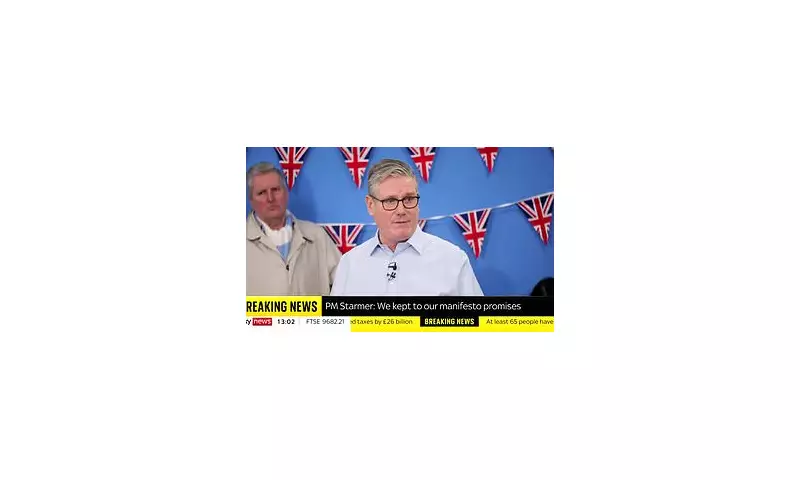
PM Faces Intense Scrutiny Over Tax Plans
Prime Minister Keir Starmer found himself in the hot seat today as he faced accusations of misleading the public about Labour's controversial tax proposals. During a tense exchange with Sky News' Beth Rigby, the Labour leader struggled to defend his government's decision to implement a £30 billion tax package.
The bruising interview followed Wednesday's Budget announcement, which included extending the much-criticised tax threshold freeze for an additional three years. Sir Keir insisted the massive financial package represented the "least" that Chancellor Rachel Reeves could impose, despite the Treasury's own watchdog concluding that no fiscal gap of that magnitude required filling.
Budget Breakdown: Where the Money's Going
The comprehensive tax assault unveiled yesterday includes an eye-watering £12.7 billion from prolonging the frozen tax thresholds until 2031. This measure will have significant consequences for British workers, with around a quarter of the working population expected to pay higher or top-rate tax by then. This marks a substantial increase from just 15% when the policy was initially introduced in 2021.
Analysis reveals the stark impact of these changes: had the higher rate threshold kept pace with inflation, it would have reached £70,370 by 2030. Instead, it remains frozen at £50,270, creating a substantial effective tax increase for millions of workers.
The Resolution Foundation highlighted that most workers would have been better off if the government had simply increased income tax rates rather than freezing thresholds. Their analysis suggests that all but the top 10% of earners are worse off under the chosen approach.
Economic Warnings and Welfare Concerns
The Office for Budget Responsibility delivered several sobering assessments alongside the Budget. The watchdog warned that economic growth under Labour would be even lower than previously forecast, and notably stated that none of the 88 measures announced by Ms Reeves would have a "material impact" on boosting GDP.
Welfare spending emerged as another contentious area, with the decision to spend £3 billion annually abolishing the two-child cap receiving enthusiastic support from Labour MPs. However, the OBR cautioned this would lead to an additional 25,000 large families claiming benefits, costing approximately £300 million.
Overall welfare spending projections paint a concerning picture, forecast to reach £389.4 billion annually by 2029-30, up from £333 billion in 2025-26. The Tories condemned this approach as a "Budget for benefits street," while Reform UK leader Nigel Farage criticised it as an "assault on aspiration."
Other significant measures in the Budget included a £4.7 billion raid on salary sacrifice pension schemes, the introduction of a new mansion tax costing up to £7,500 annually, and a 3p-per-mile road pricing scheme for electric vehicles. The Treasury also allocated £1.8 billion for developing Labour's controversial digital ID card plan.
Credibility Questions and Future Implications
The Institute for Fiscal Studies delivered a blow to the Chancellor's credibility, dismissing the notion that any significant "repair job" was necessary for public finances. Director Helen Miller noted that Ms Reeves had received a relatively optimistic assessment from the OBR but chose to increase benefits spending regardless.
Ms Miller also warned that the government's spending plans now involve "near-heroic restraint in an election year," suggesting difficult decisions lie ahead. The timing of many tax measures, scheduled for 2028 just before the next expected election, has raised eyebrows among economic observers.
As the dust settles on this contentious Budget, both Sir Keir and Ms Reeves face ongoing questions about their economic stewardship and whether they've maintained the trust of the British public during challenging fiscal times.






